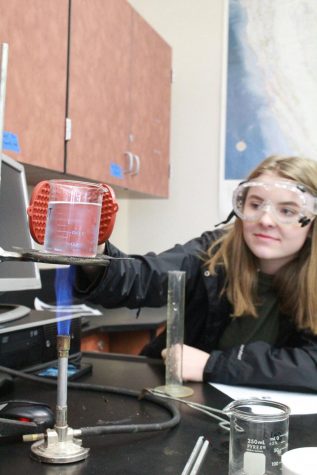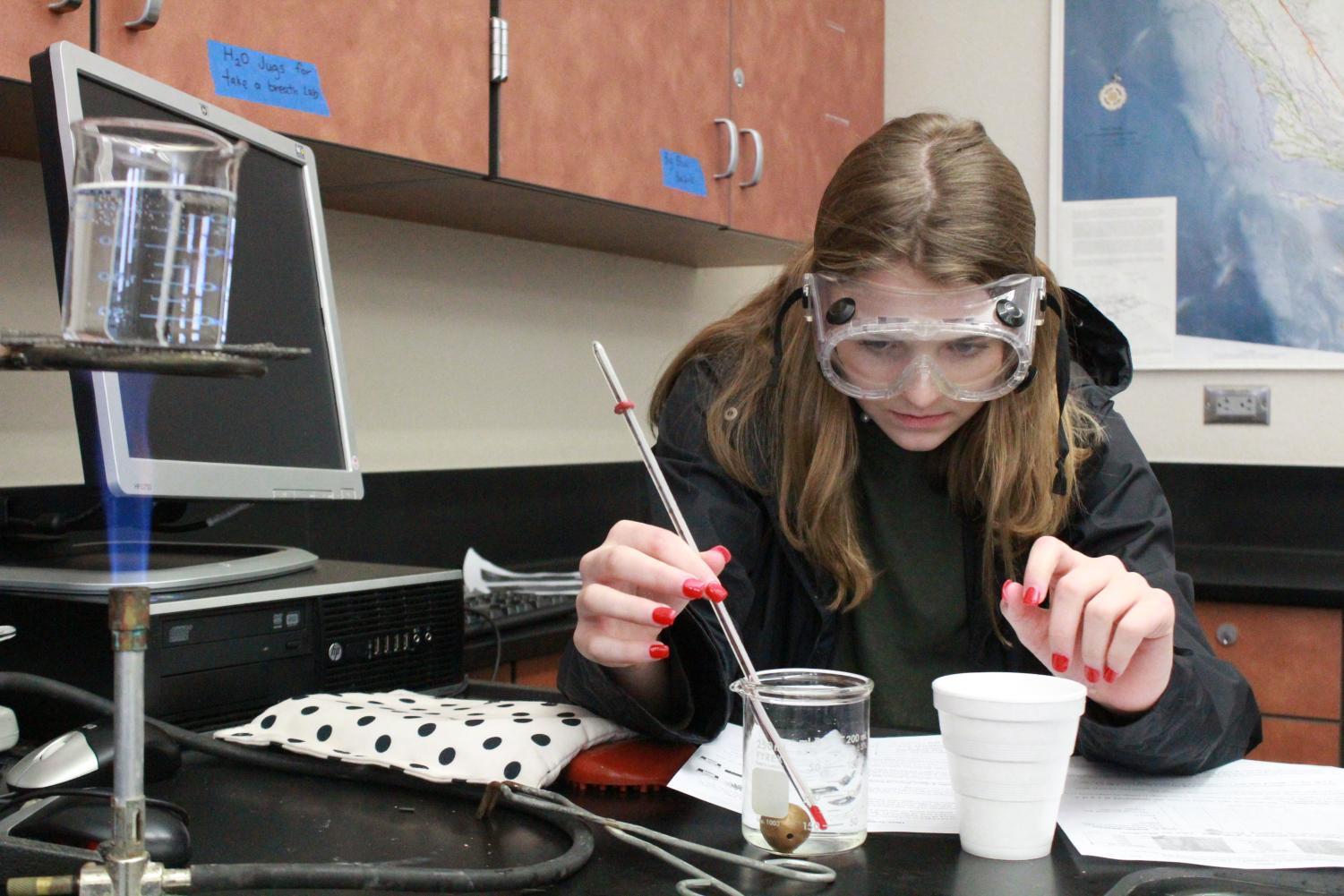What it’s like: Honors Chemistry
February 27, 2019
As a multi-part series, Whitney Update explores what it’s like in each Advanced Placement and Honors course to give students an accurate perspective.
If Honors Chemistry students are not wearing safety goggles during labs, then they will be expected to sing “The Goggles Song” for the class. Safety is a concept addressed early and often due to the emphasis on labs rather than notes.
“Having labs to demonstrate what we are learning and not having to just do notes all the time is the easiest part of Honors Chemistry,” Katie Lomba said.

Each day starts with an open-note daily quiz and once completed, students begins copying notes on the focused subject of that day. Topics covered throughout both semesters include atomic structure, nuclear chemistry, the Periodic Table, chemical bonding, chemical names and formulas, chemical equations and reactions, stoichiometry, gases, solutions, acids & bases, thermochemistry, reaction rates, equilibrium, and laboratory techniques.
“The course load of Honors Chemistry is the same amount of material as the regular chemistry class, however it does have two additional topics per unit and a little bit higher math skills are expected,” Mrs. Katie Torok said.
Torok is one of the two Honors Chemistry teachers, the other being Mrs. Erin Johnson.
The class is available for sophomores who passed with a grade of “A” or higher in biology and Integrated Math I.
“Those that are in a higher level math classes — Integrated II/III combo or Integrated III is recommended — that’s probably the best fit, and those students are the most successful in Honors Chemistry,” Torok said.
“There are three primary reasons for students to enroll: students intend to enroll in AP Chemistry, students intend to major in a science in college or students prefer a more challenging pace than a traditional college preparatory curriculum provides as well as the GPA boost,” Torok said.
“Daily homework really only takes about 15 minutes to finish the worksheet but when topics get difficult I use a lot of outside videos on YouTube to help me out,” Alicia Chiang said.
The average grade in Torok’s class is a high B. Students can expect three to four ESA’s throughout the unit and a multiple choice test at the end of the unit.
“To prepare for the tests, I study worksheets, daily quizzes and the pretest. I also do the study guide even though it’s optional and use Crash Course Chemistry on YouTube to help me out,” Jordan Kuzyanov said.
Putting in extra time in order to research confusing topics and really understand how to use equations is necessary in Honors Chemistry and students who are willing to put in the time and effort it takes to pass this class should enroll.
by DAYA KHUNKHUN
